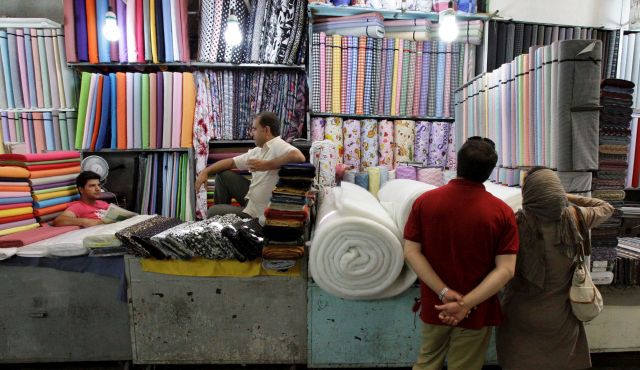Sunday 14 October 2012 - 14:18
Story Code : 7660
Fearing loss of lucrative deal, Sweden opposes new Iran sanctions
Israeli Foreign Ministry official says deal between Swedish communications company Ericsson and Teheran is real reason behind opposition to further sanctions.
The Swedish government is trying to prevent the European Union from imposing further sanctions on Iran for fear of losing a lucrative deal for Swedish communications company Ericsson, according to a Foreign Ministry official in Jerusalem.
Several leading EU countries are aware of the planned deal between Ericsson and Tehran, and of the Swedish government's fear that the deal will be in jeopardy if further sanctions are imposed, the source said.
The EU foreign ministers are due to meet in Luxembourg on Monday to vote on a new round of sanctions.
"We know that in Sweden they fear that if the deal between Ericsson and Iran is canceled this could have implications for the company's other deals," the Foreign Ministry official said. "The Swedes fear that other countries with problematic human rights records such as China will hear about the cancellation and worry about their ties with Ericsson."
The Swedish communications giant has signed a series of agreements with government-owned company Irancell in recent years. Last October Bloomberg reported on Ericsson's supplying to Irancell communications technology that allows the tracking of cell phone users' whereabouts. According to the investigation, the Iranian regime used these systems to locate opposition activists.
Over the past week, pressure has been put on the Swedish government to drop its opposition to the new round of sanctions.
According to the Foreign Ministry official, the Stockholm embassies of Germany, France and Britain lodged a complaint at the Swedish Foreign Ministry. They gave examples of the effect of sanctions on the Iranian regime, but Swedish officials replied that sanctions only harm the Iranian people and do not change the government's decisions.
Some of the pressure was aimed directly at Swedish Foreign Minister Carl Bildt, who is seen as a sticking point regarding the Iran issue. Israeli diplomats said that several European officials have wondered about any personal interests Bildt might hold in Iran that could cause him to object to sanctions.
The Foreign Ministry official noted that reports from various European capitals mention extreme anger, particularly from Germany, France and Britain, over Sweden's conduct on this issue. For example, a senior German diplomat described Sweden's behavior to his Israeli counterpart as "embarrassing, absurd and illogical foot-dragging."
In addition to Sweden, Greece, Cyprus and Malta object to further sanctions. Any decision has to be unanimous, and currently it appears the four countries's objections will only dilute the list of new sanctions. Germany, France, Britain and Italy proposed a total embargo on trade between the EU and Iran, but because of the Swedish opposition, it appears this step will be postponed.
The European foreign ministers are due to discuss significant new sanctions including a ban on banking and trade deals with Iran except for food, medicine and humanitarian equipment. They would also shorten the list of other goods defined as "legitimate trade."
The new sanctions would also obligate every company in the EU to request preliminary approval from its country's government before doing business with Iran, even when concerning products whose sale to Iran is not banned.
The new sanctions would also include a ban on importing natural gas from Iran to EU countries, and a ban on selling various metals to the Islamic Republic.
The new sanctions would also ban companies in the EU from providing Iran with technology, equipment and spare parts for oil tankers, and Iran's fleet of tankers would not be allowed to sail under any EU country's flag. This would severely hamper Iran's ability to market its oil around the world; oil is normally transported by ship.
The Iran Project is not responsible for the content of quoted articles.
# Tags











